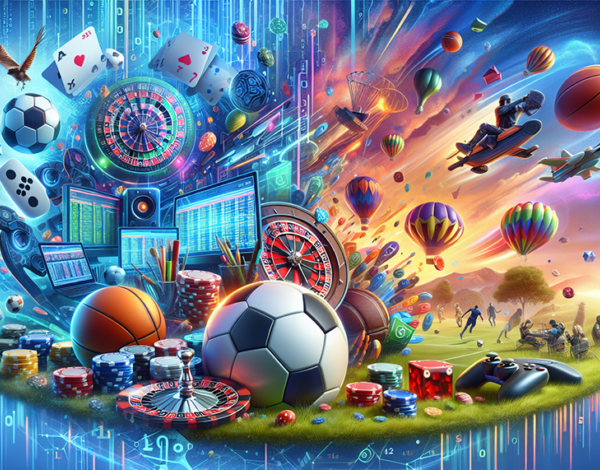In recent years, a remarkable evolution has taken place in the realm of entertainment and competition: the rise of esports. What began as a niche interest has now blossomed into a global phenomenon, captivating millions of enthusiasts and drawing the attention of mainstream media, sponsors, and investors alike. Esports, or electronic sports, refers to organized video game competitions, often played professionally and broadcasted to a wide audience. This article aims to delve into the roots of this burgeoning industry, its rapid growth, and its profound impact on the landscape of modern entertainment.
Origins and Evolution
The roots of esports can be traced back to the early days of video gaming, with informal competitions taking place among friends and enthusiasts. However, it wasn’t until the late 20th century that esports began to take shape in a more organized manner. One pivotal moment was the formation of the Cyberathlete Professional League (CPL) in the late 1990s, which laid the groundwork for modern esports tournaments.
As technology advanced and online gaming became more prevalent, the competitive gaming scene exploded in popularity. Games like “Counter-Strike,” “StarCraft,” and “Quake” emerged as early staples of competitive play, drawing in players from around the world to compete for glory and prize money. The advent of streaming platforms such as Twitch provided a platform for gamers to broadcast their gameplay to a global audience, further fueling the growth of esports.
Mainstream Recognition
In recent years, esports has transcended its niche origins to become a mainstream cultural phenomenon. Major tournaments now fill arenas to capacity, with millions more tuning in online to watch their favorite teams and players compete. The prize pools for top-tier events have skyrocketed, reaching millions of dollars and attracting sponsorship from major corporations.
One of the key drivers behind the mainstream recognition of esports is its appeal to younger audiences. Unlike traditional sports, which may require physical prowess and athleticism, esports levels the playing field, allowing anyone with skill and dedication to compete at the highest levels. This accessibility has made esports particularly popular among millennials and Generation Z, who have grown up in a digital age.
Global Reach and Cultural Impact
Esports’ rise has been truly global, with tournaments and competitions held in every corner of the world. Countries like South Korea, China, and the United States have emerged as hotbeds of esports activity, producing top-tier talent and hosting some of the largest events in the industry. Esports has also fostered a sense of community among players and fans, transcending geographical boundaries and cultural differences.
Moreover, esports has had a profound impact on popular culture, influencing everything from fashion and music to traditional sports. Professional esports teams have become household names, and top players are celebrated as celebrities in their own right. The growing influence of esports has even prompted traditional sports organizations to invest in or create their own esports divisions, recognizing the immense potential of competitive gaming.
Challenges and Future Prospects
Despite its rapid growth and widespread popularity, esports still faces challenges as it continues to mature as an industry. Issues such as player burnout, integrity concerns, and the need for sustainable business models remain pertinent topics of discussion within the esports community. Additionally, as the industry becomes increasingly commercialized, there are concerns about maintaining the grassroots spirit and inclusivity that have been central to its success.
Looking ahead, the future of esports appears bright, with continued growth projected in the coming years. Advances in technology, such as virtual reality and augmented reality, promise to further enhance the esports experience, creating new opportunities for innovation and engagement. As esports continues to evolve and expand its reach, one thing remains clear: competitive gaming is here to stay, reshaping the landscape of entertainment and captivating audiences around the world.



